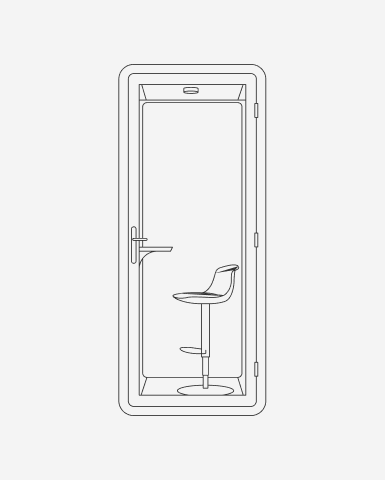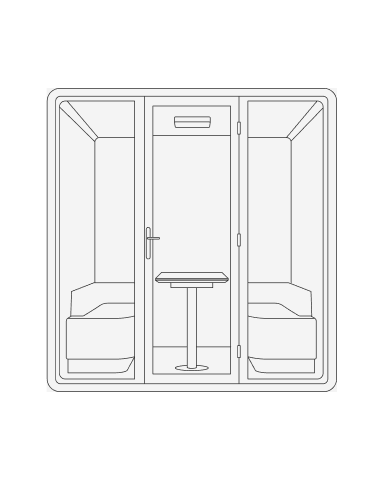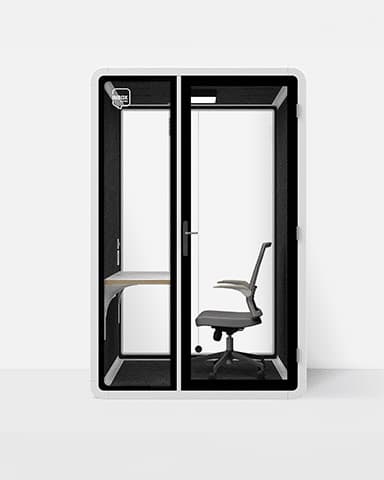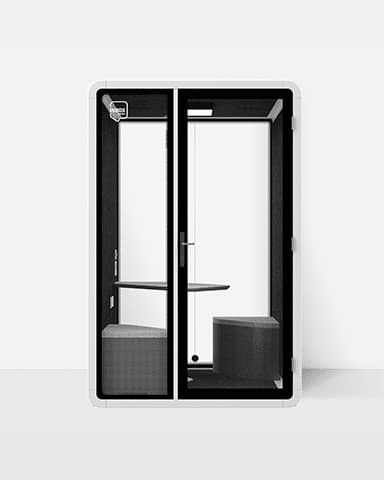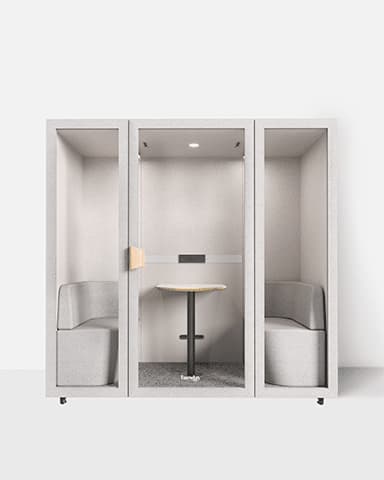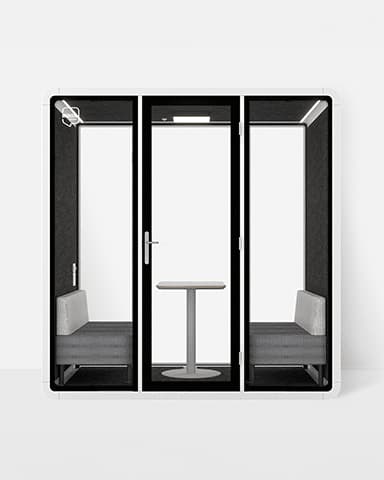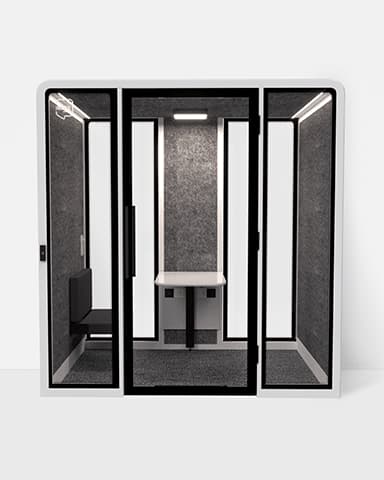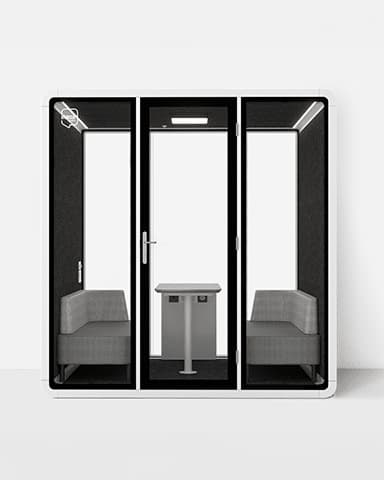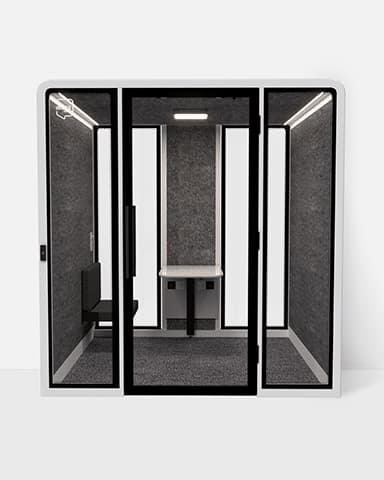Productivity
In today’s fast-paced work environments, noise pollution has become a significant concern. Research shows that excessive noise in the workplace not only hampers productivity but also has profound psychological effects on employees. This blog post delves into the psychology of noise, exploring how it impacts concentration, mental health, and overall well-being, and offers expert insights on creating a focused work environment.
The Impact of Noise on Concentration
Noise is one of the most prevalent disruptions in modern offices. Studies indicate that background noise, especially intermittent noises like conversations, phone rings, and office machinery, can significantly impair cognitive performance. According to a study published in Noise & Health, continuous exposure to noise can reduce the capacity for complex cognitive tasks, leading to increased errors and reduced work quality .
Dr. Arline Bronzaft, an environmental psychologist and expert on noise pollution, explains, “Unwanted, uncontrollable, and unpredictable sounds, whether soft or loud—labeled noise—can be annoying and very disturbing. The body reacts to the annoyance of these unwanted sounds, or noises, through a complex set of physiological responses that are collectively labeled stress.” Her research highlights the need for quieter living spaces and workspaces to enhance health and well-being, as well as children’s development and cognition.
Noise affects concentration in several ways. The irrelevant speech effect, a phenomenon where background speech interferes with cognitive processing, illustrates this well. When employees are trying to concentrate on a task, hearing background conversations can make it difficult to maintain focus. Research has shown that this effect is particularly pronounced when the background speech is semantically related to the task at hand, making it harder to ignore and more distracting.
Another critical aspect is the cognitive load imposed by noise. Cognitive load refers to the amount of mental effort being used in the working memory. In a noisy environment, the brain has to work harder to filter out irrelevant sounds, leaving less capacity for the task at hand. This increased cognitive load can lead to faster mental fatigue, reduced productivity, and a higher likelihood of errors.
The Psychological Toll of Noise on Employee Well-being
Noise can also contribute to a phenomenon known as learned helplessness. When employees are continuously exposed to uncontrollable noise, they may begin to feel that they have no control over their environment. This perception can lead to feelings of helplessness and a lack of motivation, further impacting productivity and mental health.
The fight-or-flight response is another significant factor. This response is the body’s automatic reaction to perceived threats. In a noisy environment, the constant bombardment of sound can trigger this response, causing an increase in heart rate, blood pressure, and stress hormone levels. Over time, this chronic activation of the fight-or-flight response can lead to serious health issues, including cardiovascular disease and mental health disorders.
Psychological Effects of Noise
The psychological impact of noise extends beyond reduced concentration. Chronic exposure to high noise levels can lead to increased stress, anxiety, and even depression. The World Health Organization (WHO) has identified noise pollution as a critical public health issue, linking it to various adverse mental health outcomes .
A study Ergonomics found that employees exposed to consistent noise levels rated their satisfaction with the environment and their health lower. Furthermore, the researchers concluded that a lack of speech privacy resulted in lower self-rated job-satisfaction .
Creating a Focused Work Environment
Given the detrimental effects of noise, it is crucial for organizations to implement strategies that minimize noise and create a more focused work environment. Here are some expert recommendations:
- Soundproof Pods and Quiet Zones: Implementing soundproof pods, like those offered by Inbox Booths, can provide employees with a quiet space for focused work and confidential conversations. These pods are designed to block out external noise, creating a serene environment conducive to productivity.
- Acoustic Panels and Sound Masking: Installing acoustic panels and sound masking systems can help absorb and reduce ambient noise. These tools are effective in open office layouts, where noise levels tend to be higher.
- Noise-Cancelling Technologies: Providing employees with noise-cancelling headphones can be an immediate and effective solution for mitigating noise. These devices help block out background noise, allowing employees to concentrate better on their tasks.
- Workplace Design: Thoughtful workplace design can also play a crucial role in managing noise levels. Creating designated quiet zones, using carpeting and curtains to dampen sound, and arranging workstations to minimize noise interference can all contribute to a quieter work environment.
- Behavioral Strategies: Encouraging employees to adopt noise-reducing behaviors can also be beneficial. This includes setting designated times for quiet work, using headphones for phone calls, and being mindful of noise levels in shared spaces.
Case Studies and Success Stories
Many companies have successfully implemented noise-reduction strategies and seen significant improvements in productivity and employee well-being. For example, an advanced tech company called Venus Aerospace, a cutting-edge startup in Houston developing reusable hypersonic technology that will revolutionize and redefine the boundaries of aviation, defense, and beyond, installed soundproof pods in their noisy hangar. The booths are in constant use, and the implementation of them into the office culture has been so successful that the president has taken a booth for his own private office, with him stating, “. . .this is maybe the most important thing we’ve done in terms of being able to get work done.”
Another example is world famous athletic apparel company, lululemon, that installed booths to reduce the noise of a hybrid work environment, where employees constantly need to take virtual meetings across teams. They found that employees were able to concentrate better, and there was a noticeable excitement about the booths.
Conclusion
The psychology of noise is a critical aspect of workplace well-being and productivity. Understanding the impacts of noise on concentration and mental health underscores the importance of creating quieter, more focused work environments. By implementing soundproof pods, acoustic solutions, and thoughtful workplace design, organizations can significantly enhance their employees’ cognitive performance and psychological well-being.
References:
- Clark, C., & Sörqvist, P. (2012). A 3 year update on the influence of noise on performance and behavior. Noise & health, 14(61), 292–296. https://doi.org/10.4103/1463-1741.104896
- Bronzaft, A. (2002). Noise Pollution: A Hazard to Physical and Mental Well-Being. Handbook of Environmental Psychology, p. 499-510
- World Health Organization. (2011). Burden of disease from environmental noise: Quantification of healthy life years lost in Europe. https://cdn.theconversation.com/static_files/files/2547/9789289002295-eng.pdf
- Lee, P. J., Lee, B. K., Jeon, J. Y., Zhang, M., & Kang, J. (2015). Impact of noise on self-rated job satisfaction and health in open-plan offices: a structural equation modelling approach. Ergonomics, 59(2), 222–234. https://doi.org/10.1080/00140139.2015.1066877
Share article with your community!
Productivity

